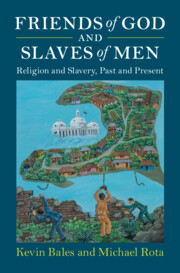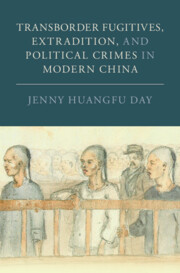Refine search
Actions for selected content:
616408 results in History
4 - Liberal Mining Regime and the Coal Rush of the 1920s
- from Part II - The Coal Regime during the Boom Years and an Environment at Stake
-
- Book:
- Vietnam's Coal Frontier
- Published online:
- 25 October 2025
- Print publication:
- 13 November 2025, pp 103-132
-
- Chapter
- Export citation
8 - Technology and National Security
-
-
- Book:
- Explaining the History of American Foreign Relations
- Published online:
- 24 October 2025
- Print publication:
- 13 November 2025, pp 161-182
-
- Chapter
- Export citation
Manuscripts
-
- Book:
- Local Priests in the Latin West, 900–1050
- Published online:
- 31 October 2025
- Print publication:
- 13 November 2025, pp 292-292
-
- Chapter
-
- You have access
- Open access
- HTML
- Export citation
Chapter 5 - The Traveling Archive
- from Part I - Sources
-
-
- Book:
- African Literature in Transition
- Published online:
- 31 October 2025
- Print publication:
- 13 November 2025, pp 77-92
-
- Chapter
- Export citation
Figures
-
- Book:
- Waging Peace
- Published online:
- 03 November 2025
- Print publication:
- 13 November 2025, pp viii-x
-
- Chapter
- Export citation
10 - Ideology
-
-
- Book:
- Explaining the History of American Foreign Relations
- Published online:
- 24 October 2025
- Print publication:
- 13 November 2025, pp 204-224
-
- Chapter
- Export citation
Appendix 1 - Children of local priests attested in West Frankish charters, 900–1050
- from Appendices
-
- Book:
- Local Priests in the Latin West, 900–1050
- Published online:
- 31 October 2025
- Print publication:
- 13 November 2025, pp 226-227
-
- Chapter
-
- You have access
- Open access
- HTML
- Export citation
Abbreviations
-
- Book:
- Waging Peace
- Published online:
- 03 November 2025
- Print publication:
- 13 November 2025, pp xiii-xvi
-
- Chapter
- Export citation
maps
-
- Book:
- Local Priests in the Latin West, 900–1050
- Published online:
- 31 October 2025
- Print publication:
- 13 November 2025, pp viii-viii
-
- Chapter
-
- You have access
- Open access
- HTML
- Export citation
2 - The Discovery of the Quảng Yên Coal Basin
- from Part I - Precolonial Settings and the Introduction of Large-Scale Coal Mining
-
- Book:
- Vietnam's Coal Frontier
- Published online:
- 25 October 2025
- Print publication:
- 13 November 2025, pp 44-67
-
- Chapter
- Export citation
Appendix 3 - English translation of the earliest version of the Admonitio Synodalis
- from Appendices
-
- Book:
- Local Priests in the Latin West, 900–1050
- Published online:
- 31 October 2025
- Print publication:
- 13 November 2025, pp 235-239
-
- Chapter
-
- You have access
- Open access
- HTML
- Export citation
11 - Race
-
-
- Book:
- Explaining the History of American Foreign Relations
- Published online:
- 24 October 2025
- Print publication:
- 13 November 2025, pp 225-240
-
- Chapter
- Export citation

Friends of God and Slaves of Men
- Religion and Slavery, Past and Present
- Coming soon
-
- Expected online publication date:
- November 2025
- Print publication:
- 27 November 2025
-
- Book
- Export citation

Transborder Fugitives, Extradition, and Political Crimes in Modern China
-
- Expected online publication date:
- November 2025
- Print publication:
- 30 October 2025

Socialist De-Colony
- Black and Soviet Entanglements in Ghana's Cold War
-
- Expected online publication date:
- November 2025
- Print publication:
- 20 November 2025
-
- Book
-
- You have access
- Open access
- Export citation
A. Llinares Planells and G. López Juan (eds.), Rethinking Violence in Valencia and Catalonia (Berlin, Brussels, Chennai, Lausanne, New York and Oxford: Peter Lang, 2024). Pages 297 + graphs 3 + tables 5. Hardback £45.00.
-
- Journal:
- Continuity and Change , First View
- Published online by Cambridge University Press:
- 10 November 2025, pp. 1-3
-
- Article
- Export citation
Evolutionary Cognitive Archaeology and Acheulean Technology. A Historiographic Review
-
- Journal:
- Cambridge Archaeological Journal / Volume 35 / Issue 4 / November 2025
- Published online by Cambridge University Press:
- 10 November 2025, pp. 633-647
-
- Article
-
- You have access
- Open access
- HTML
- Export citation
Trust and invigilation: The practical functions of time-fixed development plans, Colombia 1958–1970
-
- Journal:
- Science in Context , First View
- Published online by Cambridge University Press:
- 10 November 2025, pp. 1-21
-
- Article
-
- You have access
- Open access
- HTML
- Export citation
The Belgian ‘Impossible Scenario’ of 1980: Reinventing planning in times of ‘crisis’
-
- Journal:
- Science in Context , First View
- Published online by Cambridge University Press:
- 10 November 2025, pp. 1-24
-
- Article
-
- You have access
- Open access
- HTML
- Export citation

Negotiating Imperialism
- Murakami Naojirō's Archival Diplomacy
-
- Expected online publication date:
- November 2025
- Print publication:
- 20 November 2025
-
- Book
-
- You have access
- Open access
- Export citation
